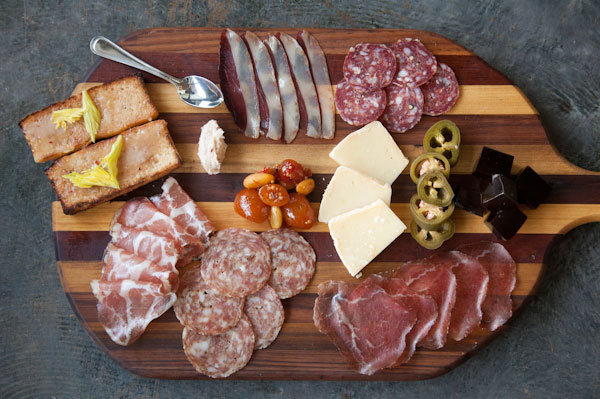

New York: Some New York shopkeepers worry that a boom in artisanal meat could be on the skids over heightened cancer fears, but well-heeled customers say they have no intention of ditching processed meat.
The warning from the World Health Organization that processed meats increase the risk of colorectal cancer and that red meat "probably" does too has put noses out of joint.
"It sucks," says a clearly annoyed staff member at one of New York's most reputed charcuteries.
He doesn't want his name or that of his establishment in the press, fearing "bad publicity."
But for now his bottom line hasn't changed and interestingly, his customers seem unfazed about the threat of contracting bowel cancer from his servings.
"You can get cancer from a lot of things," sniffed John, who regularly buys sausages from the shop.
"Life causes cancer. We're all gonna die anyway," agreed Steven Sebbane, another customer.
According to OECD figures, only Australia eats more meat than the United States, which in 2013 chowed down 200.6 pounds (91 kilos) per person of beef, veal, lamb and poultry.
The charcuterie business has boomed in New York thanks in part to German, Polish and Ukrainian immigrants, and a new trend for quality food with a veneer of sophistication.
Cured meats and artisanal sausages have followed cheese, bread and beer in attracting a growing fan base among the uber-wealthy and the middle class hipster crowd harking after authenticity.
"It has definitely grown as interest in cheese has grown," said George Wright, head monger at Murray's, a smart cheese and charcuterie outlet at Manhattan's glitzy Grand Central station.
"As they (cheese shops) expand their cheese displays they expand their meat displays, and yeah, I think it is something that has become a lot more popular," he said.
Quality and moderation
The niche market in New York is not governed by price, but by quality and perception that artisanal products are preferable to mass-produced meats made from questionable ingredients.
But the WHO's International Agency for Research on Cancer appeared to lump all producers of processed meats -- including dried meat like beef jerky -- in the same category.
"I thought that to buy it there would be better than from the supermarket," said Christina outside Schaller and Weber, a famous charcuterie on New York's well-to-do Upper East Side.
The demand for quality comes at a cost, with artisanal products more expensive to produce than those on the mass market.
"We are absolutely at a disadvantage compared to brands like Boar's Head or Smithfield, but their concerns are different from ours," said Ben Turley, a founder of The Meat Hook, a butcher-charcuterie that opened in 2009 in Williamsburg, the trendiest neighborhood in Brooklyn.
"They look to the bottom line. They want to make their product as cheap as possible to make their accessibility greater."
The Meat Hook sources meat from local farmers which grass-feed their livestock, which represents only three percent of the US market, says Turley.
He says the cost of his products are "not far from Whole Foods" the organic US supermarket chain which has since expanded to Britain and Canada.
"Studies such as this one and the one last month by Consumer Reports are much more damning of the conventional system than ours," said Turley.
Other customers stress quantity over quality.
"We very rarely buy processed or cured meat, so this is a one-time special, said Archana Dwivedi, who works at the United Nations as she shopped at Grand Central.
"I think what the news told us was everything in moderation as long as you don't have too much. I think I'm in line with that so I'm not too worried."
AFP




